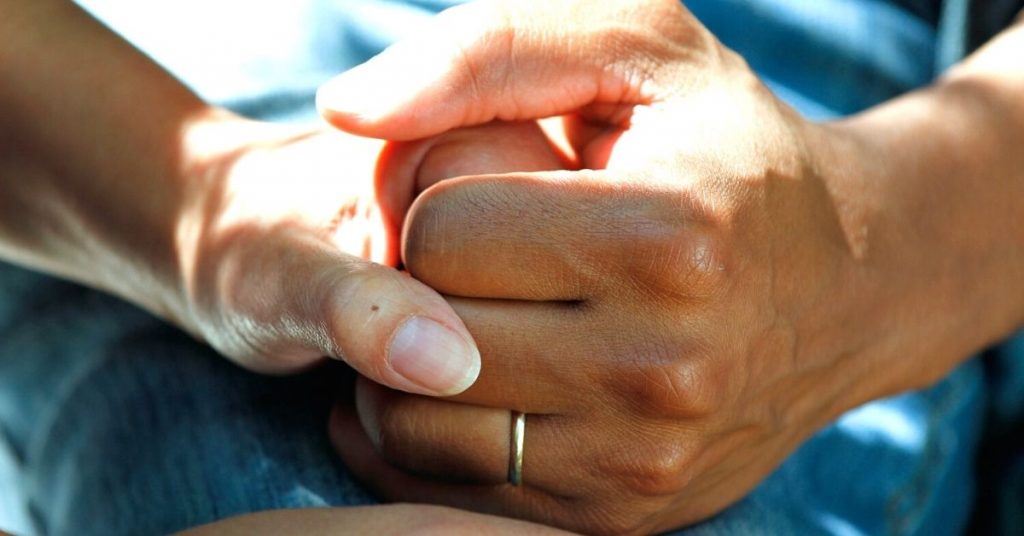By: Amy Cheng
Samuel* is the father of three children but is also now beginning to look after parents who are ageing.
“It’s hard because sometimes you’re letting someone else down to do something else,” he said in an interview.
Samuel is part of the “Sandwich Generation”, a group of individuals (usually middle-aged) who are “sandwiched” between caring for children and ageing parents who need financial, physical and emotional support.
He has three children between the ages of three and nine and at times, he feels “pulled in different directions”.
“My mum, she’s had a broken arm just recently and she’ll have some appointments she needs to get to, so she might just need a lift somewhere,” Samuel said.
“And then at the same time my wife might be needing to be somewhere and I have to pick the kids up from school or take them home.”
His dad also has Parkinson’s disease. He receives in-home care through BaptistCare, which Samuel helped set up.
Samuel believes that caring for ageing parents is a “natural progression” in life.
“At some point, your parents are not looking after you anymore. There’s a point further down the road where you have to think about looking after them.”
“It’s hard because sometimes you’re letting someone else down to do something else.”
Residential Aged Care
Elaine McNaughton, Head of Residential Care at Wesley Mission, works with families who are looking to move loved ones into residential care. She said the pandemic made things particularly difficult for the Sandwich Generation.
“The pandemic… has obviously come with major impacts for everyone within the community and residential care,” she said.
“In terms of choosing care, that’s probably added an extra layer to what can be an already challenging and maybe confronting situation for families and their loved ones. They’ve had to home-school children and there’s been financial pressure for everyone as well.”

Often the need to move a loved one into residential care comes suddenly, Ms McNaughton said.
“(The Sandwich Generation) can find that things suddenly change for mum or dad. “Either an acute episode has happened or a sudden health change and they’re considering residential care.
“They often can be quite distressed and feel guilt as well about considering those options, even though it’s nothing to feel guilty about.”
A Tough Decision
Whether during a pandemic or not, moving a loved one into residential care can be a hard decision for both the loved one and their family.
“Residential care is sort of creating a new home because their loved one can’t be at home and it’s a massive step to leave that home to come into care,” Ms McNaughton said.
“We really look at how we can help create that new home; it will never replace their own home, but how we create a new home and support the family.”
“We really look at how we can help create that new home (but) it will never replace their own home.”
Honouring Parents
Reverend David Van Akker, a chaplain for Wesley Retirement Living, has journeyed with families to help them process these changes.
“Taking your parent to an aged care facility can be highly emotional,” he said.
“Some of these elderly folks go from living in the family home for the last 70 years into hospital facilities and then into a retirement village or nursing home.”
In his work, he has seen a lot of people wrestling with allowing their parents to make their own choices and said it is helpful to ask what that wrestle is about.
“Is it about ‘I think I know better than you’? Is it about my own desire to be a little bit less inconvenienced by my aging parents?”
When it comes to adult children working out how to honour older parents, Reverend Van Akker believes it starts with allowing them to make their own choices.
“Honouring their own agency and (their) choices for how they want to live and where they want to live,” he said. “My grandmother, who died at 99, she had a sweet tooth and she wanted to eat pavlova for breakfast.“My dad constantly fought against her; he said ‘Mum, you can’t eat that, you’ve got to eat healthy.’ But she had pavlova and sweets and she’d push her dinner aside and she lived to 99.”
However, Reverend Akker added that a line needs to be drawn sometimes if something is clearly wrong or unhelpful.
“She had pavlova and sweets and she’d push her dinner aside and she lived to 99.”
Honouring elders is about allowing them to tell their stories, according to Reverend Van Akker.
“It’s not me infantilising you or treating you like a child, but actually respecting you and respecting that you still have a lot to give.”
When the residential care decision is particularly hard for families, Reverend Van Akker suggests talking to a chaplain.
“Talking to a third party who knows the territory, knows the terrain, knows how emotional it is for everybody but is not caught up in it all; it can be really helpful.”
“I think that’s 95 per cent of what needs to be done – to slow it down and talk it through.”
*Name has been changed
Article supplied with thanks to Hope Media.
